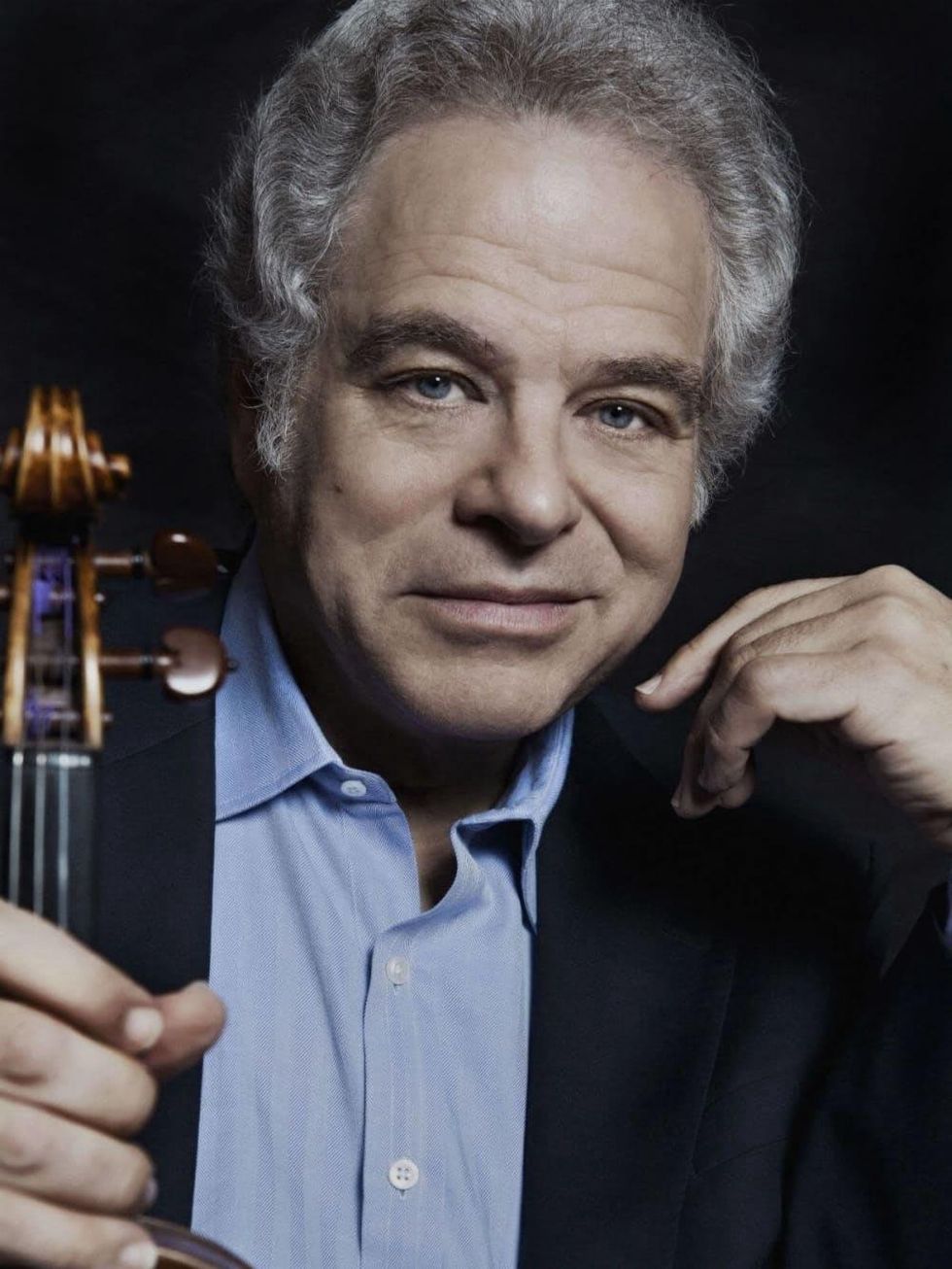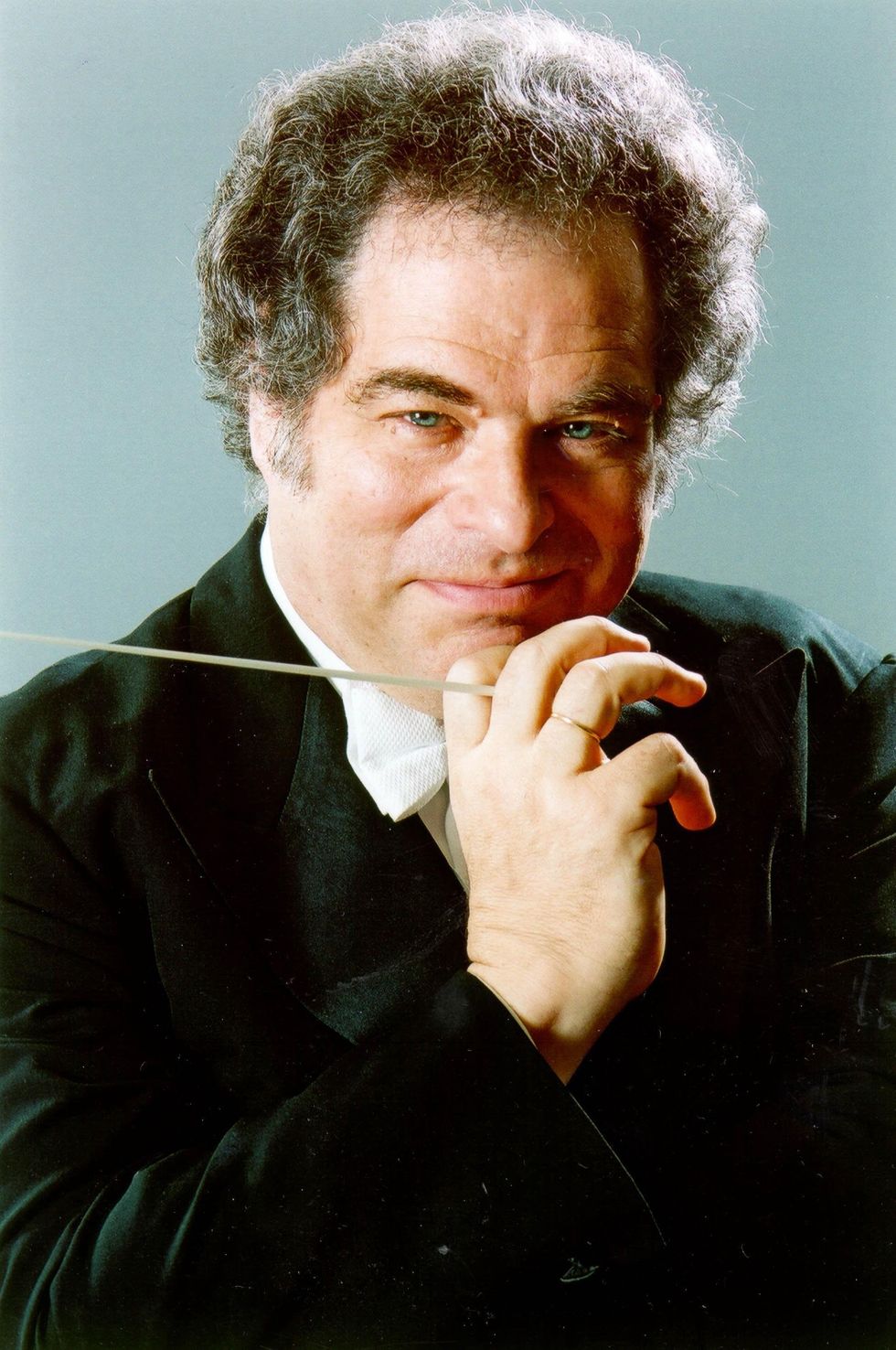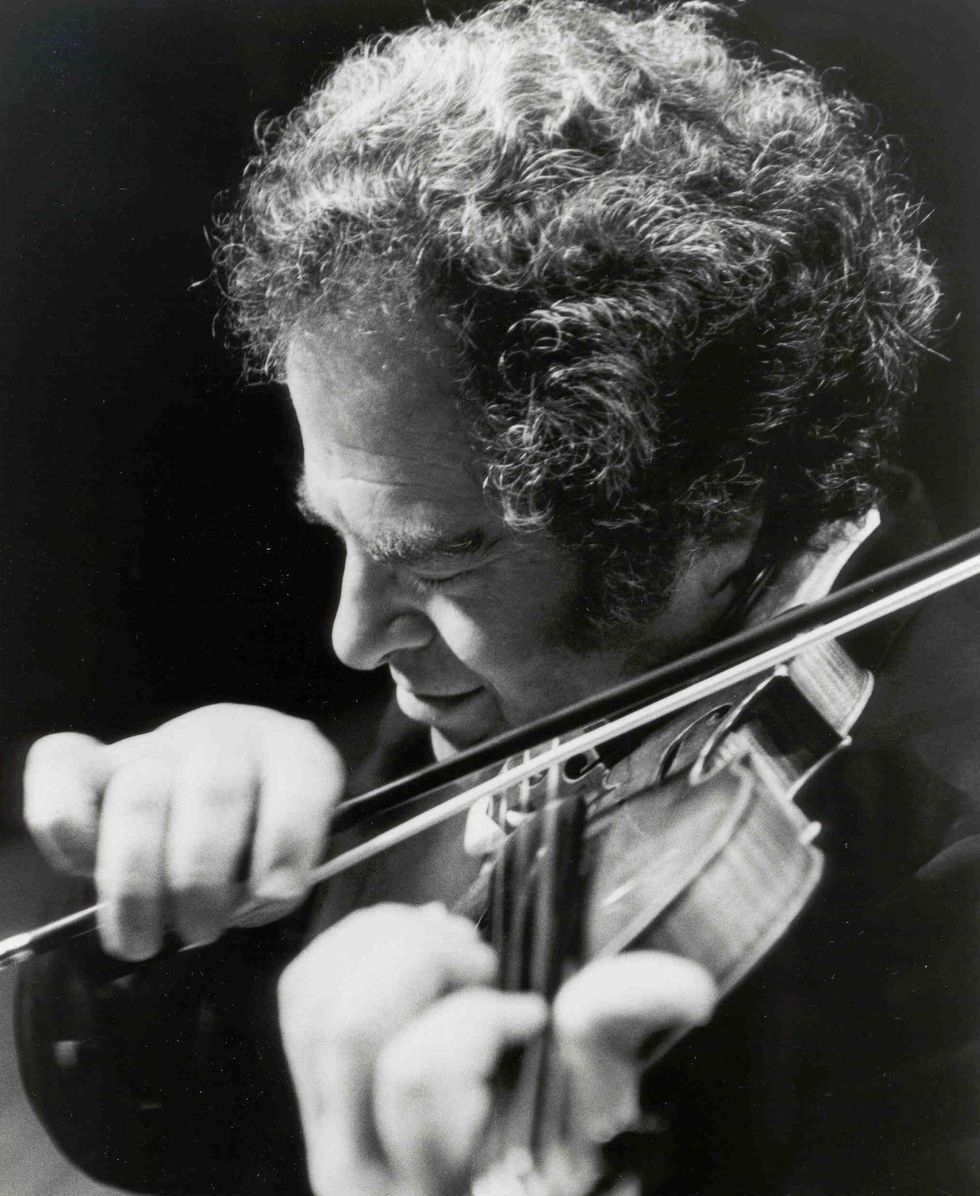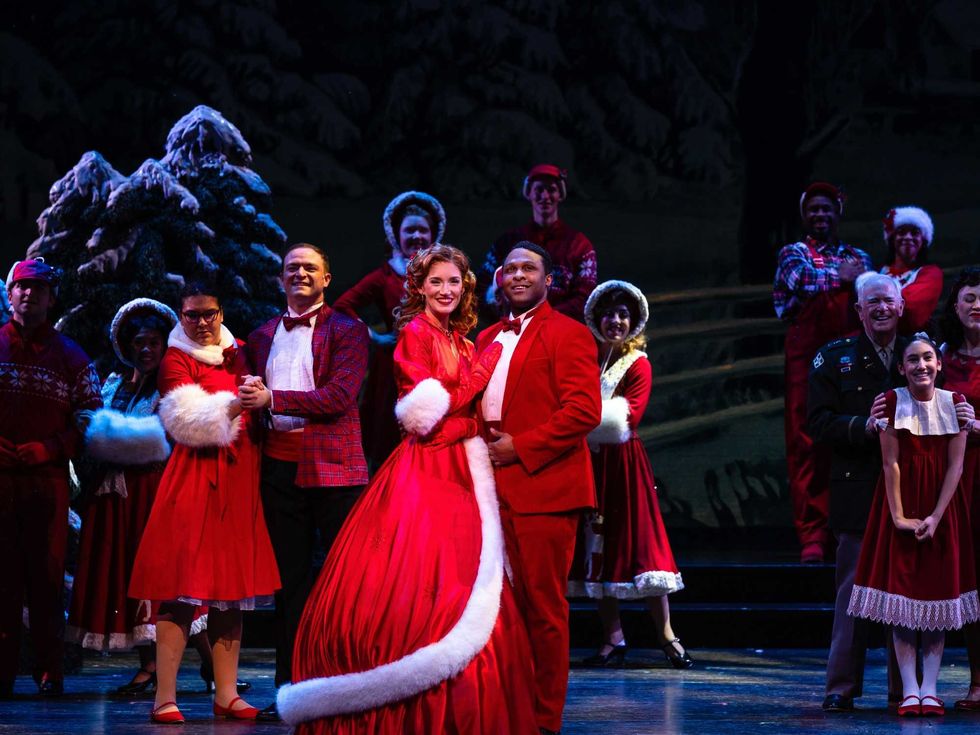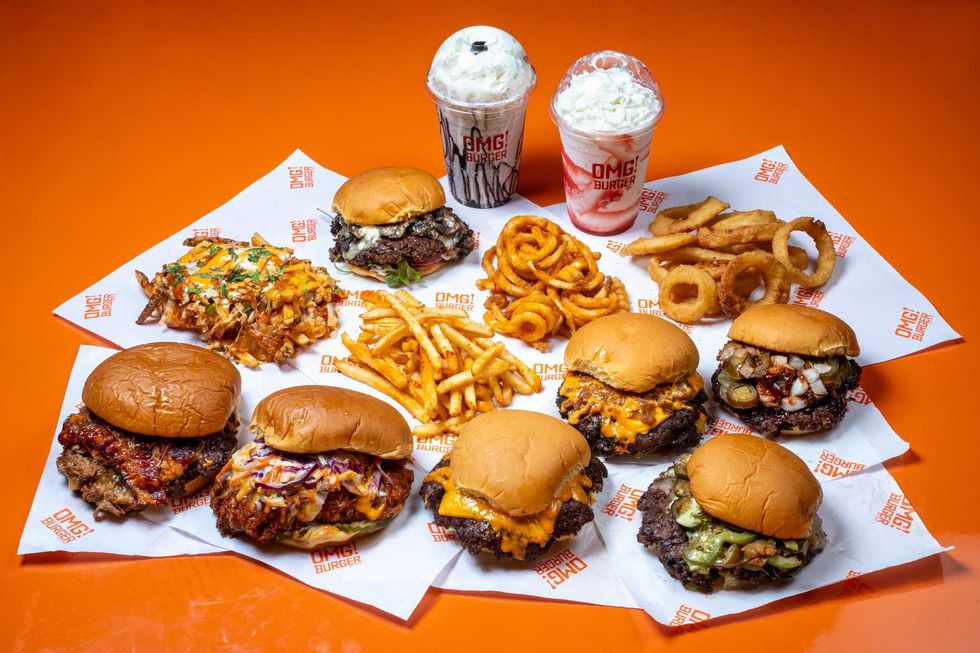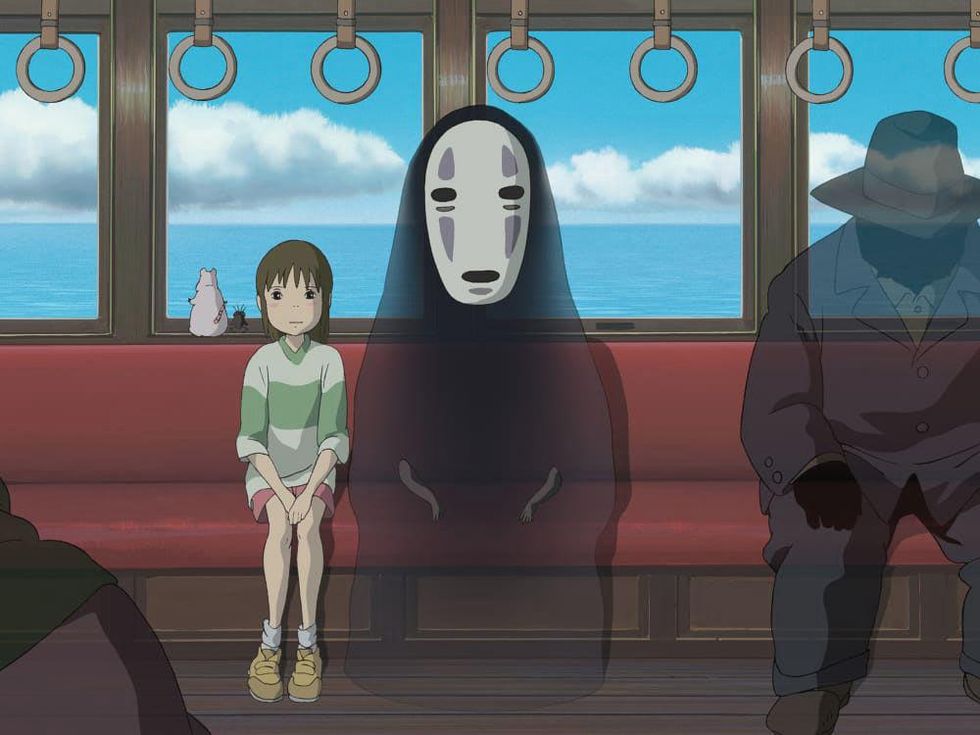The CultureMap Interview
An adventurous life: Itzhak Perlman recounts bullets flying above his crib and the challenges of playing Beethoven
I don't remember learning about Itzhak Perlman. The man and his music were a much a part of my family's life as knowing that eggs were for breakfast, milk was good for your bones and brushing your teeth was the last thing you did prior to going to bed. It's just how things were for a Jewish music-loving family.
Perlman was present. His recordings suffused our living room. And his stature in the classical music world was as big as life itself.
I felt like a deer frozen in front a speeding car when I had the opportunity to meet him at Rice University's Shepherd School of Music 10 years ago. His daughter Ariella (who married Houston Symphony's acting associate principal on horn, Robert Johnson) was considering attending as a freshman, and I was tasked with entertaining him and his family for a brief period of time.
I must have behaved like a star-stricken imbecile, although I can't recall any details of the conversation.
This interview, in light of his upcoming recital presented by Society for the Performing Arts on Thursday, 8 p.m., at Jones Hall, was my opportunity to redeem myself. Over the phone, Perlman and I chatted about life in Israel, his first experience with a violin and teaching.
CultureMap: You were born in 1945 pre-Israel during an era of turmoil and change. What do you remember about your childhood? How did your parents end up there prior to the establishment of the State of Israel in 1948?
You were probably in Tel Aviv during the 1948 Arab-Israeli War and during the Suez Crisis of 1956, though I am assuming you were already in the United States by the Six-Day War of 1967.
Itzhak Perlman: My parents were Zionists who came from Poland. They were young kids going to a place where they had no connections. They were following a dream. They met in Israel; my father and mother came to Israel separately.
That's what they wanted to do. I am quite amazed at them; how they went somewhere that wasn't a country, where they didn't know what was going on — to start a life. When I was born the British were still present. My parents told me that we used to live in a small apartment house in Tel Aviv.
Apparently there was a straight bullet that landed just above my crib (during an uprising). A bullet. Above my crib! They kept that bullet.
CM: Do you recall that incident?
IP: I didn't know anything about it, of course.
Whenever the sirens went off, which was fairly often, we would hide in the middle room so we would be the furthest away from any dangers looming outside.
My parents were very, very poor. They did what they had to do to survive.
At that time a penny was a lot of money. You could by a loaf of bread. One of their best dinners, my parents used to tell me, would be a slice of watermelon and a piece of bread. A little chicken maybe for the holidays, but that was a luxury.
When I was born, things were only marginally better.
Food is always very important when you grow up. We would receive care packages. At that time a can of Del Monte Fruit Cocktail was something that was cherished. It was the greatest thing.
CM: Did you grow up in fear?
IP: I wasn't that fearful, though it was intense at times. Our apartment house in Tel Aviv did not have a basement so whenever the sirens went off, which was fairly often, we would hide in the middle room so we would be the furthest away from any dangers looming outside. That was the best we could do.
When you are growing up you take everything as part of life. Basically, when I was growing up I was concentrating on music.
CM: Do you remember the first time you picked up a violin? Was it love at first sound?
IP: Yes, I do remember. I was 3 years old and the sound was very unpleasant. I just said, I don't want this.
That violin was one of those eighth-sized, small fiddles. It didn't sound the way I had heard it. It's sound was the reason why I wanted to play the violin in the first place. I heard the sound and thought, that's something I wanted to do.
But when I put the bow on the string, it didn't sound very good. It was a year-and-a-half later that I took it up again with a serious teacher.
CM: I had the opportunity to meet one of your teachers, Dorothy DeLay, at the Aspen Music Festival and School before she passed. I watched her lead a master class. You also studied with Ivan Galamian at The Juilliard School.
What would you say are the most important lessons you carry with you to this day from these two giants in violin pedagogy?
Galamian's teaching style was closer to the way that my teacher in Israel taught me: Do what I tell you. And if you do what I tell you, you'll play well.
IP: When I first arrived in the United States, Delay was Galamian's assistant. Because of that, she was the first teacher that heard me when I first arrived here. I started studying with her first. Six or seven months later, I took lessons with both of them.
Technically, especially in the bow arm, they both taught the Franco-Belgium style as opposed to the Russian style, which is how I played in Israel as my first teacher was of Russian background.
If you look, for example, at Heifetz's bow arm, Milstein's bow arm and Elman's bow arm, those were Russian style bow arms. It's about the grip and about how the sound was produced — with a lot of bow speed.
Galamian taught differently.
If you look at modern fiddle players, most of them use Galamian's method, the Franco-Belgium method, where the grip means the wrist doesn't come up; it's straighter.
Galamian's teaching style was closer to the way that my teacher in Israel taught me: Do what I tell you. And if you do what I tell you, you'll play well. He had a method, scales, etudes. If you followed them, you'll be able to play the violin very well.
CM: Is that what made him such a legendary teacher?
IP: When you think about a teacher — what is the sign of a great teacher? It's not, at least in my opinion, about how many great talents this teacher has.
I don't think a teacher can teach greatness. A teacher can teach the "equipment" so you can then express what you've got. What Galamian did is that he had this method, and as long as you followed the method, you had good equipment. The rest was up to you, what you wanted to do with it.
About Ms. Delay: She had this whole thing about the method also, but she was more about involving the students in the process.
I never liked practicing. So what I do right now is practice when I feel that something needs it. Then, I do it.
She would say something like, "Sugarplum, what did you think of that? What did you think of this?" If something was out of tune, she wouldn't say it was out of tune. She would say, "Sugarplum, what's your concept of G sharp?" That was a code word that signaled something was slightly off.
At the beginning I was very upset because I was used to teachers telling me that was doing something bad. She would encourage you to think, rather than just follow orders.
That was a major difference.
In retrospect, the way I teach today is more like the way she taught, even though at the very beginning I didn't like it. I wasn't used to her way. I felt more comfortable when someone told me what to do. You didn't have to think, and "thinking" is something that's so important when you practice.
It's about involving the student in the process. That's why she was a great teacher.
CM: Does someone with your experience still practice? Or do you rely on muscle memory and years of playing the fiddle?
IP: I need to practice. Once we hang up I am picking up the fiddle and I'm going to start practicing.
The thing about practicing with me is that I know what needs to be done, so that's what I do.
Some people feel that practicing — and I am not saying one is better than the other — reflects people's attitudes towards working. I know some colleagues who feel that practicing is something you do, like having breakfast and lunch everyday. Everyday you practice. It's a part of life.
Heifetz used to practice all the time. When he stopped playing concerts he would still pick up the fiddle and practice scales.
I don't know what I am going to do, but it's going to be fun.
That was never the case with me; I never liked practicing. So what I do right now is practice when I feel that something needs it. Then, I do it.
CM: I posted on Facebook that I was scheduled to speak with you, and asked my friends if anyone had something they were dying to learn about you. Know that you have Shabbat dinner invitations and many local admirers.
One violinist wanted to know if there was one concerto that you hold in particular high esteem. Is there a solo showpiece that has the greatest poignancy to you? Why?
IP: Whatever I play, I love. I've never played anything that I didn't like.
The greatest violin concerto and the most challenging — and continues to be so all the time, which is what makes it so amazing — is the Beethoven Violin Concerto. I always say when a student of mine tackles the piece, you started on a journey that's life altering. You can play it now and sound really good, and then next year you find more stuff in it, and 10 years from now you find more stuff in it. It never seizes to give. It really gives the player something that is always challenging, musically and technically — all the time.
The Beethoven is a bunch of scales, a bunch of arpeggios — and that's what makes it so challenging.
How do you play a scale and phrase it in such a musical way so that it belongs to the rest of the phrase, so that it belongs to the rest of the movement, so that it fits well. Classical composers, when you think about Mendelssohn and Mozart, are the most difficult to play, even though technically somebody would say, how can you compare those works to Paganini, Wieniawski or Sibelius?
Those piece have technical things you can study, but to play an arpeggio and to make it a part of a phrase, not only that, but to make sure it's spotless and clean, that's something that shows how well you practiced as a kid.
That's why we practice scales. You need to play scales so you get your left hand vocabulary, so when you play the Beethoven concerto you don't actually have to practice the scales because you already have them in your fingers. You know where everything is. The intonation has to be spot on because the whole piece is incredibly transparent.
CM: Your upcoming recital in Houston is filled with the bread and butter of violin classical repertoire. In addition to Beethoven's Sonata for Piano and Violin No. 1 in D Major, Frank's Sonata for Violin and Piano in A Major and Tartini's Sonata in G Minor for Violin and Continuo "Devil's Trill," you intend to announce more selections from the stage.
What do you have planned? Any Klezmer?
IP: It's not going to be Klezmer. It's going to be music that people were used to hearing in concert when Heifetz and Kreisler were performing. Transcriptions, things like that. Probably some Kreisler. We'll see what else.
What I always do is have a great pile of music on the stage and we choose what we feel. If the weather in Houston is pretty good, I'll play something hot. If the weather is cold, I'll play something more melodic.
I don't know what I am going to do, but it's going to be fun.
___
Society for the Performing Arts presents Itzhak Perlman in recital with pianist Rohan DeSilva on Thursday, 8 p.m., at Jones Hall. Tickets start at $35 and can be purchased online or by calling 713-227-4772.
Society for the Performing Arts presents Itzhak Perlman in recital with pianist Rohan DeSilva on Thursday, 8 p.m., at Jones Hall.
